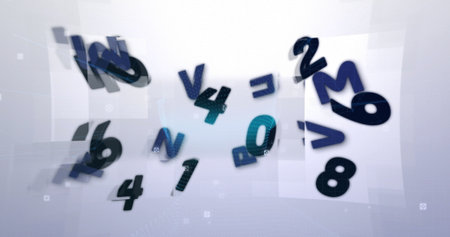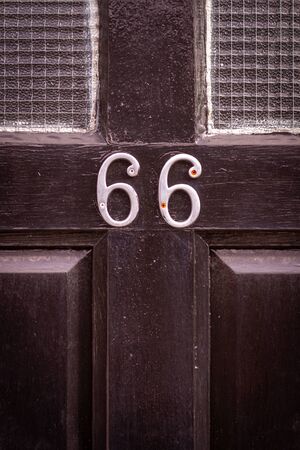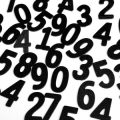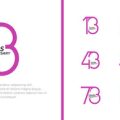Introduction to Online Tarot Readings
Tarot cards have long held a place of fascination within British culture, weaving their way through the annals of history from the Victorian parlours to the modern-day living room. Traditionally, tarot readings were an intimate affair, conducted face-to-face and often accompanied by an air of mystery and anticipation. These sessions spoke to a collective yearning for insight and guidance, forming part of Britain’s rich tapestry of mystical exploration. Yet, as society has evolved, so too have our methods of seeking wisdom. In today’s digital age, online tarot readings have emerged as a prominent avenue for spiritual consultation, marrying centuries-old traditions with cutting-edge technology. This shift towards virtual guidance reflects not only the adaptability of British culture but also its enduring curiosity for the esoteric—demonstrating how ancient practices can find renewed relevance amidst our fast-paced, interconnected world.
2. The Cultural Context of Tarot in the UK
In the United Kingdom, tarot and mystical guidance have long been woven into the fabric of society, drawing from a rich tapestry of history, folklore, and evolving popular culture. British traditions, with their roots in both Celtic mysticism and Victorian spiritualism, have provided fertile ground for tarot’s acceptance as both entertainment and serious introspection. From the ancient druids to modern-day seekers, the allure of uncovering hidden truths through symbols resonates deeply with British sensibilities.
The perception of tarot in Britain is shaped by an interplay between scepticism—a hallmark of British rationalism—and a fascination with the unseen. While some may approach tarot readings with a raised eyebrow, many are drawn to its psychological insights and the comfort it offers during uncertain times. The popularity of tarot surged notably during periods of social upheaval, such as post-war Britain and recent years marked by rapid technological change. In such moments, online tarot readings have become particularly attractive, offering accessible guidance while respecting privacy and discretion—qualities valued in British culture.
Popular culture has also played a significant role in shaping how tarot is viewed in the UK. From classic literature like Shakespeare’s witches to television dramas featuring fortune-tellers on seaside piers, mystical themes are never far from the public imagination. Below is a summary illustrating how different aspects of British tradition and culture contribute to perceptions of tarot:
| Aspect | Influence on Tarot Perception |
|---|---|
| Celtic & Folk Traditions | Encouraged reverence for nature, symbols, and divination practices |
| Victorian Spiritualism | Brought tarot into parlours as both amusement and serious inquiry |
| Sceptical Rationalism | Promotes critical thinking; leads some to see tarot as psychological rather than supernatural |
| Popular Media & Literature | Keeps mystical themes alive; familiarises the public with tarot imagery and concepts |
| Modern Digital Culture | Makes tarot more accessible; reduces stigma through private online sessions |
Ultimately, British engagement with tarot reflects an enduring curiosity about fate and self-understanding—tempered by a cultural tendency towards humility and pragmatism. As digital platforms make tarot readings increasingly available across the UK, these historical threads continue to inform how people seek—and interpret—virtual guidance.

3. The Emergence of Virtual Tarot Services
The landscape of tarot readings in Britain has undergone a quiet revolution with the advent of online services. Once confined to candle-lit parlours and esoteric shops tucked away on cobbled streets, tarot guidance now finds its place on digital platforms accessible from the comfort of ones home. Notably, platforms such as Keen, Kasamba, and even UK-based sites like The Circle have become household names for those seeking spiritual insight at their fingertips. These virtual spaces cater to a broad audience, offering everything from traditional Celtic Cross spreads to more modern, intuitive approaches that reflect the diversity of British belief systems.
Within this burgeoning online realm, many respected British practitioners have established their reputations through live video sessions, chat consultations, and email readings. Some well-known tarot readers have transitioned from local communities to national prominence by harnessing social media and dedicated websites. This digital transformation means that guidance is no longer limited by geography; whether one lives in bustling London or the tranquil Scottish Highlands, access to experienced readers is only a click away.
Accessibility remains a cornerstone of this evolution. Online tarot readings break down barriers—be they physical distance or social stigma—allowing individuals from all walks of life to explore spiritual matters discreetly and conveniently. Flexible appointment times and affordable pricing structures further democratise the experience, making it possible for the curious and the committed alike to receive insights tailored to their unique circumstances.
4. Trust, Skepticism, and Community
As online tarot readings gain traction in British culture, questions of trust and scepticism naturally arise among both seasoned seekers and newcomers. The virtual realm offers convenience and accessibility, yet it also presents unique challenges regarding authenticity and integrity. In the UK, where traditional values blend with modern innovation, the public often approaches online spiritual services with a healthy dose of discernment. Concerns about the anonymity of readers, accuracy of interpretations, and the possibility of fraudulent practices are not uncommon. However, it is within this landscape that digital communities begin to play a pivotal role.
The Balance Between Trust and Scepticism
British users frequently weigh their experiences against both personal intuition and community feedback. Many turn to online reviews, testimonials, and rating systems before selecting a tarot reader. This careful vetting process reflects the broader cultural tendency towards prudence and thoughtful decision-making.
| Aspect | Trust Factors | Scepticism Triggers |
|---|---|---|
| Reader Credentials | Verified experience, visible profiles | Anonymity, lack of information |
| User Feedback | Positive reviews, word-of-mouth | No or negative testimonials |
| Platform Security | Secure payments, clear privacy policies | Unclear terms, poor security |
The Role of Digital Communities
Online forums, social media groups, and dedicated platforms foster a sense of connection among those seeking guidance. These digital spaces allow individuals to share their experiences, offer recommendations, and discuss doubts openly. For many Britons, these communities serve as a modern-day circle—providing comfort, encouragement, and collective wisdom. Such networks can bridge the gap between scepticism and trust by offering transparency and peer support.
Cultivating Connection in a Virtual World
Despite initial reservations, the growth of digital communities has encouraged more open conversations about spirituality in Britain. People are increasingly willing to explore online tarot readings when they feel supported by like-minded individuals. This shared journey not only nurtures trust but also enriches the tapestry of British spiritual life.
5. Personal Empowerment and Digital Guidance
Within the evolving landscape of British culture, online tarot readings have become more than a passing curiosity—they serve as a modern tool for personal empowerment and growth. Many individuals across the UK are embracing these virtual consultations not merely as a form of entertainment, but as a meaningful avenue for self-reflection and informed decision-making. The convenience of digital platforms allows people from all walks of life—whether in bustling London or a quiet Cornish village—to access insightful guidance at their fingertips, transcending traditional barriers such as geography and social stigma.
For some, the appeal lies in the privacy and accessibility that online tarot provides. Without the need to physically visit a reader or declare one’s interest publicly, individuals feel free to explore their inner thoughts and emotions without reservation. This has fostered an environment where self-discovery is encouraged, supporting users as they navigate life’s uncertainties with greater confidence and clarity. In particular, British users often report that engaging with online tarot helps them to articulate their hopes and fears, reflect upon past experiences, and weigh up choices with renewed perspective—all crucial elements in personal development.
Moreover, online tarot readings frequently empower individuals to take ownership of their destinies. Rather than prescribing rigid outcomes, many readers present interpretations that encourage proactive thinking and self-awareness. The interactive nature of these sessions often prompts users to ask more profound questions about their motivations, values, and potential paths forward. As a result, tarot becomes less about fortune-telling and more about facilitating growth—helping people to make conscious decisions rooted in self-understanding.
This digital renaissance has also contributed to a broader cultural shift within Britain towards openness about spiritual exploration. It is increasingly common for Britons to share their experiences with friends or through social media, fostering communities that value mutual support and honest conversation. In this way, online tarot acts as both a mirror for introspection and a catalyst for dialogue—connecting individuals who might otherwise feel isolated in their quests for meaning.
In summary, the rise of online tarot readings reflects a uniquely British blend of pragmatism and curiosity. By harnessing technology to seek guidance from ancient wisdom, individuals are discovering new ways to empower themselves amidst the complexities of contemporary society—demonstrating that personal growth remains at the heart of this digital transformation.
6. The Future of Tarot in British Culture
As Britain strides confidently into the digital age, the future of tarot readings is being shaped by both tradition and technological innovation. The online tarot landscape continues to evolve, reflecting changing attitudes toward spirituality, self-reflection, and personal growth among Britons. No longer confined to dimly lit parlours or esoteric shops, tarot is now accessible to anyone with an internet connection—whether they’re seeking guidance during a lunch break in London or exploring life’s mysteries from a remote corner of Scotland.
Emerging Trends in Online Tarot
Digital platforms have enabled the growth of virtual tarot communities where enthusiasts gather to share insights and interpretations. Live video readings, interactive apps, and even AI-driven card draws are fast becoming staples for those who value convenience and privacy. Many British readers blend traditional symbolism with modern approaches, ensuring that each reading remains rooted in history while embracing new possibilities.
Evolving Attitudes Among Britons
The British public’s perception of tarot has shifted noticeably over recent years. Once viewed with scepticism or reserved for countercultural circles, tarot is increasingly seen as a legitimate tool for self-discovery and reflection. People from diverse backgrounds now turn to online readings not only for fortune-telling but also for mindfulness and emotional clarity.
The Enduring Appeal of Tarot
Despite rapid technological change, the enduring appeal of tarot lies in its ability to offer hope, comfort, and perspective—qualities that resonate deeply within British culture. Virtual guidance allows individuals to explore their innermost thoughts while maintaining a sense of privacy and autonomy. As society becomes more digitally connected yet personally introspective, it is clear that tarot will remain a cherished companion on Britain’s ever-unfolding journey.


